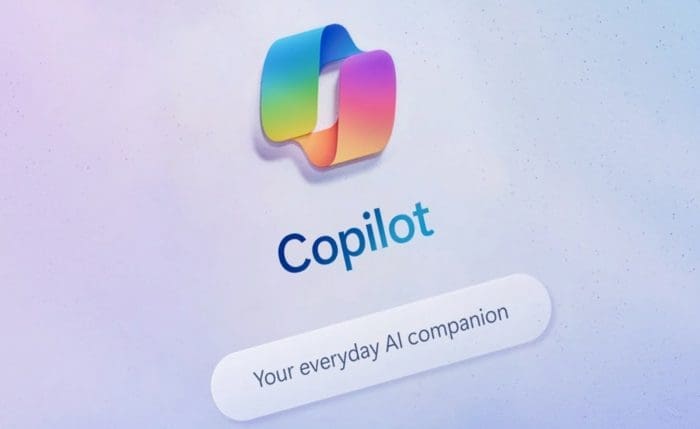
Microsoft Copilot: IT Managed Services & AI Integration for Businesses
Revolutionize your service desk! Microsoft Copilot offers IT managed services & AI integration. Enhance your business with AI-powered service & expert IT management.
Your London Telecoms and IT partner

With the ever-changing landscape of opportunities and challenges, London is one of the world’s largest and most diverse economies. Representing a wide range of industries and sectors, and a highly skilled workforce, one thing is for sure – the city’s economic graph is only going upwards!
Constantly evolving with new businesses, startups launching every day, and established businesses adapting to changing market conditions & technologies, the city is known for its entrepreneurial spirit and its ability to attract talent and investment from around the world. However, this dynamic business environment can also be highly competitive and challenging, with businesses facing pressure to stay ahead of the curve and remain innovative & responsive to changing customer needs. This can require a high degree of adaptability, agility, and resilience, as well as the ability to anticipate and respond to new trends and challenges.
London is a global financial centre, and the City of London is home to many financial institutions, including banks, investment banks, insurance companies, and asset management firms
Central London is home to many professional services firms, including law firms, accounting institutions, consulting agencies, and advertising companies
Central London is known for its shopping districts, such as Oxford Street, Regent Street, and Bond Street, which are home to many high-end and local retail stores.
The Square Mile is home to many hotels, restaurants, and bars, catering to both tourists and locals
London has a thriving tech and media scene, with many startups, digital agencies, and media companies located in the city
The City of London has several hospitals, clinics, and medical research institutions, making it a hub for healthcare services
London is home to several prestigious universities and colleges, attracting students from around the world
London has a vibrant real estate market, with many property developers, estate agents, and property management firms located in the city
There is an amazing mix of the modern with the old, be it architecture, cuisine or the styles of business operations. However, many businesses in Central London have embraced modern technology to a great degree, especially those in the tech, media, and financial services industries. For example, tech startups and digital agencies rely heavily on technical support to maintain their IT infrastructure and keep their systems and software up to date.
Financial services firms require unified communications to manage their trading platforms and ensure that their systems meet regulatory requirements. Even businesses in other industries, such as retail and hospitality, definitely require technological support for their point-of-sale systems, inventory management software, and other infrastructure. Information Technology plays a crucial role in ensuring the smooth operation of these businesses and is an important aspect of maintaining their competitiveness in today’s digital economy. In fact, IT has become increasingly interwoven with the operations of all industries and sectors. From financial services and tech sectors to hospitality and retail, technology has transformed the way businesses run, interact with customers, and compete in the global race.
Businesses in London are increasingly using digital tools and platforms to streamline operations, automate tasks, and enhance efficiency. For example, businesses are using cloud-based software and platforms to manage customer relationships, track inventory, and monitor employee performance for internal calibration. This has enabled companies to reduce costs, improve productivity, and thus increase profitability.
Technology has also revolutionised customer engagement and communication today. The rise of social media and mobile devices has created new opportunities for businesses to connect with customers, build brand awareness, and drive sales. Many businesses in London are now using social media platforms such as Facebook, Twitter, and Instagram to engage with customers, promote products and services, and build a loyal following.
In addition, technology can personalize customer interactions and provide a more seamless and convenient experience. For example, artificial intelligence (AI) and machine learning algorithms analyse customer data and provide tailored recommendations. This has become increasingly important in the retail and hospitality sectors, where customers expect a personalized and seamless experience across all channels.
The use of technology has also transformed the approach in marketing and advertising. Digital marketing channels, such as search engine optimization (SEO), pay-per-click (PPC) advertising, and social media advertising, have become increasingly important in reaching and engaging with target audiences. Data analytics and digital marketing tools measure the effectiveness of marketing campaigns and one can thus adjust strategies in real-time.
In the financial services sector, technology has revolutionized the way monetary transactions are conducted and managed. London is one of the world’s largest financial centres, and businesses in the city are using technology to streamline trading, manage risk, and comply with regulatory requirements. For example, trading platforms and algorithms are used to execute trades in real-time, while blockchain technology is used to enhance security and reduce the risk of fraud.
Technology has also opened up new opportunities to expand globally and access new markets. E-commerce platforms, such as Amazon and eBay, have made it easier for businesses to sell products and services to customers around the world. Similarly, technology has enabled us to reach new audiences through digital marketing and social media advertising, regardless of their physical location.
However, the increased reliance on technology has also created new challenges. Cybersecurity threats, such as hacking and data breaches, have become more prevalent, and businesses are now required to invest in cybersecurity measures to protect their data and systems. Similarly, businesses must ensure they comply with data protection regulations, such as the General Data Protection Regulation (GDPR), to avoid potential fines and reputational damage.
If a business in London is not modernizing itself with IT, it is missing out on several key benefits and opportunities that can be critical to remaining competitive.
Firstly, the potential for increased efficiency and productivity is lost. IT tools and platforms, such as cloud-based software, automation software, and digital collaboration tools, can help businesses streamline operations, automate manual tasks, and reduce the time and effort required to complete certain processes. This can result in increased productivity, faster turnaround times, and lower costs.
Secondly, there’s no scope for improved customer engagement and satisfaction. IT tools and platforms can help businesses better understand their customers’ needs and preferences and provide personalised experiences across multiple channels. This can result in higher customer satisfaction, increased loyalty, and improved brand reputation.
Thirdly, it becomes difficult to manage increased competitiveness and market share. In today’s digital economy, businesses that are able to leverage technology effectively can gain a competitive edge by being more innovative, agile, and responsive to changing market conditions.
Fourthly, it is almost impossible to increase global reach and market expansion. E-commerce platforms and digital marketing channels can help businesses expand their reach beyond their local market and access customers around the world. By not modernizing with IT, businesses in London may be limiting their growth potential and missing out on opportunities for expansion and new revenue streams.
Finally, one may not be able to improve data management and analytics without IT tools and platforms. Businesses with IT support collect, store, and analyse data more effectively, providing valuable insights into customer behaviour, market trends, and operational performance. This can help businesses make more informed decisions, identify areas for improvement, and optimize their operations for greater efficiency and profitability.
An IT solutions company can help businesses undergo a digital transformation, which involves leveraging technology to improve business processes and operations. This can include the adoption of cloud-based solutions, the implementation of automation tools, and the development of mobile applications.
An IT solutions company can develop custom software solutions that are tailored to the specific needs of the business. This can include software for inventory management, customer relationship management, or financial reporting.
An IT solutions company helps businesses protect themselves from cyber threats by implementing cybersecurity solutions, such as firewalls, intrusion detection systems, and antivirus software. They can also provide training for employees to raise awareness of cybersecurity risks and how to avoid them.
An IT solutions company manages a business’s IT infrastructure, including servers, networks, and databases. They monitor and maintain the infrastructure to ensure optimal performance and minimize downtime.
An IT solutions company helps businesses migrate to the cloud, which involves moving data and applications from on-premise servers to cloud-based servers. This can provide businesses with greater flexibility, scalability, and cost savings.
An IT solutions company helps businesses analyse data to gain insights into customer behaviour, market trends, and operational performance. This can help businesses make data-driven decisions and improve their bottom line.
If you believe that ‘Change is the only Constant!’and would like to look at how technology will enable your business to grow, look no further! Portman tech will be glad to engage with you to discuss the possibilities…
ABOUT THE AUTHOR

Vikas Shah joined Portman Tech as Chief Technology Officer in 2018. IT has always been his passion and he has built his career around technology. Vikas closely follows developments in technology, providing clients with solutions that fit their requirements.

Revolutionize your service desk! Microsoft Copilot offers IT managed services & AI integration. Enhance your business with AI-powered service & expert IT management.

Discover what VoIP is, how it works, and the best service provider for small to medium businesses. Explore the difference between landlines and VoIP, and the appealing features and tools available.

VPNs for Business: – In today’s business world, it’s essential to protect your company’s data and your employees’ privacy. A VPN can be a valuable tool for achieving this goal.

0800 862 0120
hello@portmantech.com
123 Aldersgate Street, London EC1A 4JQ